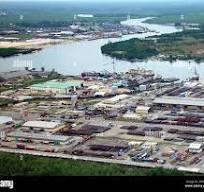By Enyeribe Anyanwu
The notorious Apapa traffic gridlock which disappeared for nearly two years now has staged a comeback, once again threatening to disrupt port operations by paralyzing movements to and from the ports.
Despite interventions by the Nigerian Ports Authority (NPA) and the Lagos State government, Apapa residents, commuters, and port workers are again contending with renewed evening congestion as trucks and petrol tankers flood the port access roads daily.
Investigation by the Network of Nigerian Maritime Journalists (NNMJ) revealed that while traffic around Apapa remains tolerable during the day, a long trail of trucks emerge in the evenings from both the Costain and Mile 2 entry points.
From the Ijora-Olopa Bridge to Apapa and from Coconut Bus Stop to Tin Can Island Port gates, trucks form long queue, with the drivers allegedly paying between ₦30,000 and ₦50,000 to secure positions in the queue.
Sources allege that some officials of key agencies—including the Nigerian Ports Authority (NPA), Nigerian Shippers Council (NSC), Lagos State Traffic Management Authority (LASTMA), Federal Road Safety Corps (FRSC), and the Nigeria Police—are complicit in the illegal toll collection, turning a blind eye to the gridlock build up.
The worst-affected routes include Wharf Road, Warehouse Road, Commercial Road, Burma Road, and Creek Road where many motorists now in the evenings abandon their vehicles, opting for motorcycles to flee Apapa before nightfall.
Former National Coordinator of the Port Standing Task Team (PSTT), Moses Fadipe, attributed the resurgence of congestion to the re-emergence of vested interests who previously profited from the chaos. He noted that the Lagos State Government is fully aware of the measures needed to avert a total collapse of traffic in the area.
Similarly, Martins Enibeli, President of both the Nigerian Institute of Shipping (NIS) and the Nigerian Licensed Ship Chandlers Association (NILSCA), blamed government insincerity for the relapse. He urged authorities to prioritize rail transport for cargo evacuation from Lagos ports and revive the Eastern and Delta ports to reduce pressure on Apapa.
A government official, who requested anonymity, confirmed that a syndicate involving both state and non-state actors is profiting from the illegal tolls collection from the truckers, further deepening the crisis.
Stakeholders are now calling for urgent federal intervention to dismantle the alleged racketeering network and restore sanity to Apapa’s port access corridors before the situation spirals out of control.





More Stories
Customs unveils new one-stop shop for cargo clearance
Ship building operation in Nigeria receives a boost, as NIMASA accredits 27 shipyards
Return of gridlocks on Lagos ports access roads unfounded –NPA, stakeholders